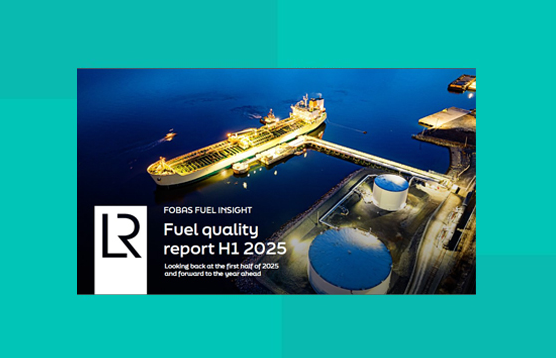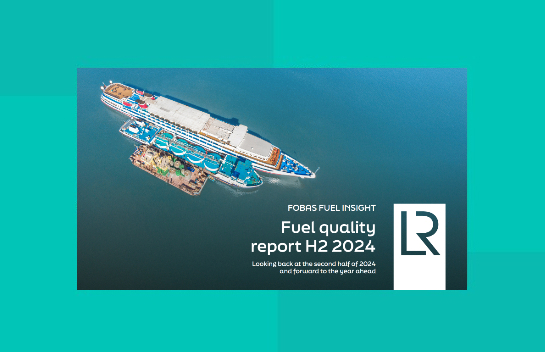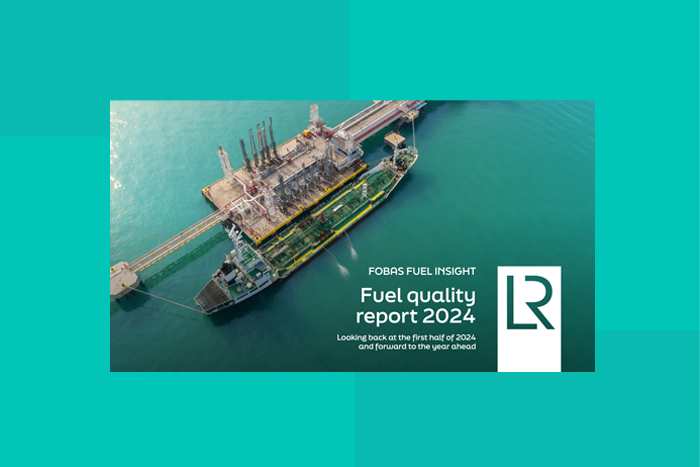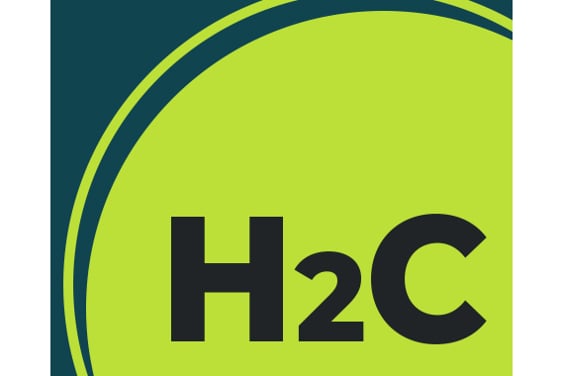Our expert teams provide critical insights and data that are essential for monitoring fuel quality on a global scale. This is particularly crucial in shipping, where fuel quality directly impacts operational efficiency, safety and environmental compliance.
This bi-annual series of Fuel quality reports will share the knowledge and experience of our FOBAS teams in a comprehensive and easily accessible format. In essence, the FOBAS Fuel Insight programme is not just about testing fuel, it's about empowering the maritime industry with the knowledge and tools needed to make informed decisions, reduce risks, and embrace the future of sustainable shipping.
As the industry transitions to future fuels, such as biofuels, methanol, hydrogen, ammonia and others, the role of FOBAS becomes even more vital. Our programme helps shipowners and operators navigate the complexities of these new fuels, ensuring they meet stringent quality standards and regulatory requirements. By staying ahead of emerging trends and regulatory changes, FOBAS supports the maritime sector in achieving operational excellence and environmental sustainability.
Highlights of the latest H2 2025 Fuel Quality Report include:
- Significant late‑year escalation of regional fuel quality failures: A sharp rise in both the frequency and severity of off specification incidents, with December 2025 recording the highest monthly totals of the year. Major bunkering hubs such as Singapore, Rotterdam, Antwerp, Hong Kong, and Port Klang experienced repeated failures involving high sulphur, catalytic fines, elevated sediment, and excessive water content, creating a challenging operational environment for vessels.
- Extreme catalytic fine, water, and sodium outliers posing direct operational risks: The report highlights contamination clusters—including Singapore with cat fine spikes up to 580 mg/kg, Rotterdam water levels reaching 14.6% vol, and Antwerp/Rotterdam sodium values near 980 mg/kg. These outliers led to rapid filter loading, separator carry over, sludge formation, and increased purification demands, requiring immediate segregation and enhanced onboard treatment measures.
- Repeated and severe flash point non compliance in distillate fuels: Multiple ports—including Civitavecchia, Lisbon, Palermo, and Lianyungang—supplied distillate fuels with flash points between 47–55°C, well below the SOLAS minimum of 60°C. These breaches represent serious safety hazards and were sometimes linked to land grade diesel entering the marine supply chain, underscoring the need for strict supplier verification and mandatory laboratory flash point testing.
Previous reports
-
Fuel quality report H1 2025
-
Fuel quality report H2 2024
-
Fuel quality report H1 2024
- Acute fuel quality incidents: Chemical contamination in some Eastern European areas containing compounds such as 4-Cumyl Phenol and Cyclohexane Diol, causing fuel pump seizures despite being technically on-spec. In addition, in some western European regions, widespread sediment, density, and ash content problems have been identified.
- Biofuel adoption and regulatory clarity: There’s a clear uptick in the use of biofuels, especially FAME-based blends like B30, Ports such as Singapore, Algeciras, and Amsterdam-Rotterdam-Antwerp (ARA) region are leading in biofuel bunkering. Regulatory updates now allow blends up to 30% biofuel to be treated as conventional fuels under MARPOL Annex VI, simplifying NOx compliance.
- Energy measurement challenges with biofuels: The report highlights a critical technical issue of the Net Specific Energy (NSE) of biofuel blends being consistently overestimated using ISO 8217 formulas. For a B30 blend, for example, the discrepancy is around 1.50 MJ/kg, which can mislead voyage planning and fuel cost estimates. Find out more on recommendations in the report to mitigate this against this occurrence.

- Fuel Quality Trends: The report highlights that although the second half of 2024 continued to see similar fuel quality issues as the first half, there was a notable increase in the use of biofuels. There were regional-specific issues, particularly with residual fuels, where off-spec sulphur results and high total sediment levels were common problems.
- Biofuel Usage: A significant increase identified in the use of biofuels, especially in Very Low Sulphur Fuel Oil (VLSFO) and Fatty Acid Methyl Ester (FAME) blends. These blends are becoming more common due to their properties aligning with standard VLSFO. However, the report notes that the quality of FAME must be monitored closely to avoid potential issues as demand increases.
- Regulatory Changes and Future Outlook: The report discusses upcoming regulatory changes, such as the introduction of the Mediterranean Sulphur Emission Control Area from May 2025, which will require ships operating in the Mediterranean Sea to use fuel with a sulphur content not exceeding 0.10% m/m. Additionally, it is anticipated that continued growth in the use of biofuels and other alternative fuels, which will present challenges in maintaining fuel quality and composition transparency.

Key trends and concerns in marine fuels for the first six months of 2024, highlighting the importance of understanding fuel quality and availability due to fast-changing regulations and fuel formulations.
- Recurring issues such as fuel stability, sulphur and flash point regulation non-compliance, and the increasing use of biofuels, with a focus on the new ISO8217 standard and its implications
- Significant incidents, such as fuel pump problems in Houston and New Orleans, and the challenges posed by the introduction of biofuels and alternative fuels like methanol, hydrogen, and ammonia.

- Acute fuel quality incidents: Chemical contamination in some Eastern European areas containing compounds such as 4-Cumyl Phenol and Cyclohexane Diol, causing fuel pump seizures despite being technically on-spec. In addition, in some western European regions, widespread sediment, density, and ash content problems have been identified.
- Biofuel adoption and regulatory clarity: There’s a clear uptick in the use of biofuels, especially FAME-based blends like B30, Ports such as Singapore, Algeciras, and Amsterdam-Rotterdam-Antwerp (ARA) region are leading in biofuel bunkering. Regulatory updates now allow blends up to 30% biofuel to be treated as conventional fuels under MARPOL Annex VI, simplifying NOx compliance.
- Energy measurement challenges with biofuels: The report highlights a critical technical issue of the Net Specific Energy (NSE) of biofuel blends being consistently overestimated using ISO 8217 formulas. For a B30 blend, for example, the discrepancy is around 1.50 MJ/kg, which can mislead voyage planning and fuel cost estimates. Find out more on recommendations in the report to mitigate this against this occurrence.

- Fuel Quality Trends: The report highlights that although the second half of 2024 continued to see similar fuel quality issues as the first half, there was a notable increase in the use of biofuels. There were regional-specific issues, particularly with residual fuels, where off-spec sulphur results and high total sediment levels were common problems.
- Biofuel Usage: A significant increase identified in the use of biofuels, especially in Very Low Sulphur Fuel Oil (VLSFO) and Fatty Acid Methyl Ester (FAME) blends. These blends are becoming more common due to their properties aligning with standard VLSFO. However, the report notes that the quality of FAME must be monitored closely to avoid potential issues as demand increases.
- Regulatory Changes and Future Outlook: The report discusses upcoming regulatory changes, such as the introduction of the Mediterranean Sulphur Emission Control Area from May 2025, which will require ships operating in the Mediterranean Sea to use fuel with a sulphur content not exceeding 0.10% m/m. Additionally, it is anticipated that continued growth in the use of biofuels and other alternative fuels, which will present challenges in maintaining fuel quality and composition transparency.

Key trends and concerns in marine fuels for the first six months of 2024, highlighting the importance of understanding fuel quality and availability due to fast-changing regulations and fuel formulations.
- Recurring issues such as fuel stability, sulphur and flash point regulation non-compliance, and the increasing use of biofuels, with a focus on the new ISO8217 standard and its implications
- Significant incidents, such as fuel pump problems in Houston and New Orleans, and the challenges posed by the introduction of biofuels and alternative fuels like methanol, hydrogen, and ammonia.










